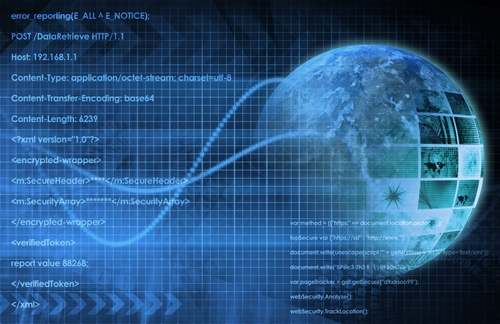The health care community has experienced considerable gains in technology in recent years, with the advent of electronic medical records ushering in a new era of data collection. Over the years, the amount of information has grown at a large rate, leading to the need for extensive informatics to effectively leverage the data in patient treatments.
Because of this, the topic of big data has come to the forefront of health care, including the medical imaging division of the industry. According to a recent survey conducted by PwC, 95 percent of CEOs are looking into improved methods of using and managing big data. However, only 36 percent have made considerable progress in their endeavors.
The results were gleaned from more than 80 interviews with health care executives from 28 countries between September and December 2013. The 17th Annual Global CEO Survey proved to be instrumental in providing insights into the minds of today's professional health leaders, as 86 percent of respondents reported that technological improvements will change their businesses over the next five years. Additionally, 89 percent of the participating CEOs are planning to bolster their innovation opportunities to coincide with the industry's recent advancements.
Health IT has proven to be an important aspect of health care reform, with the EHR incentive programs from the Centers for Medicare and Medicaid Services reimbursing physicians for their efforts after attesting to Meaningful Use. With the rise of big data, the adoption of health IT could continue to expand, which was one of the topics of discussion at the opening session of the Society for Imaging Informatics in Medicine meeting in Long Beach, California.
Exploiting informatics in health care
According to AuntMinnie.com, Katherine Andriole, Ph.D., associate director of radiology at Harvard Medical School, spoke during the Sam Dwyer Lecture at SIIM 2014 and stressed the importance of big data in health care. The information has the potential to predict patterns, which can be integral in effectively managing population health.
"Basic research at all aspects of the imaging chain needs to be done in terms of how to search data, clean data, store data and visualize data. The hope is that we can take that basic research and translate it into clinical practice, so that we can have high-quality, safe and effective health care across the world," she said, quoted by AuntMinnie.com.
While big data can drive health care toward the future of informatics, certain obstacles that could interfere with the industry's progress remain. While storage capabilities have become less expensive, the amount of information continues to expand and, as a result, more space will be needed to accommodate the increase. Additionally, privacy and security are considerable concerns when it comes to data collection, and medical professionals would need to be mindful of the accessibility of patient health information and take steps to protect it from malicious activity.
With cloud computing becoming a popular cost-effective option for PACS replacements and upgrades, the importance of big data should continue to grow. As a result, the efficiency of radiology would increase from the benefits of informatics and big data.
Ronny Bachrach
Latest posts by Ronny Bachrach (see all)
- Konica Minolta Debuts First-of-Its-Kind Digital U-Arm System at AHRA - July 27, 2016
- Researchers Detect Signs Of Stroke Risk Using MRI - June 27, 2016
- Imaging Biz: Q&A with David S. Channin MD: How to Make PACS Patient Centered - June 22, 2016






